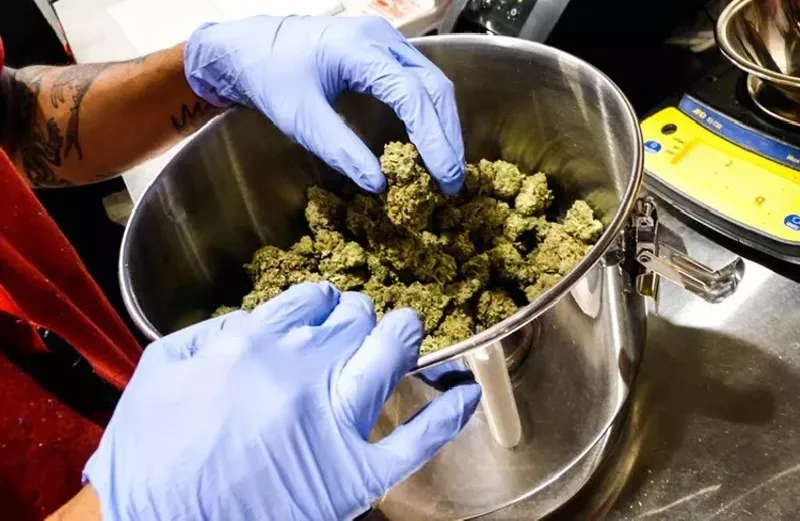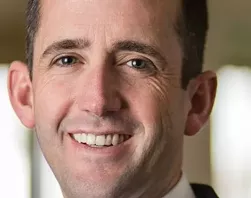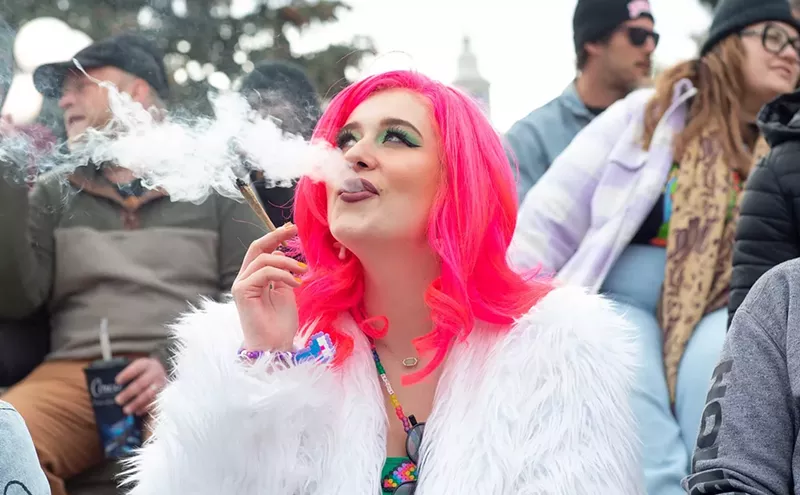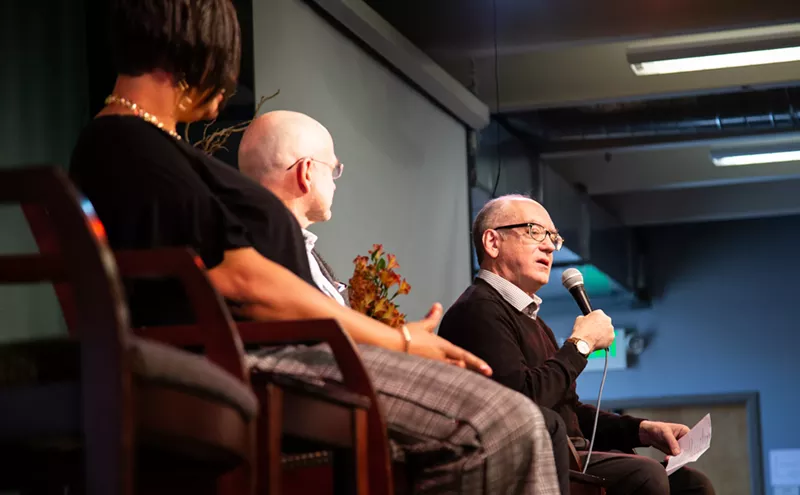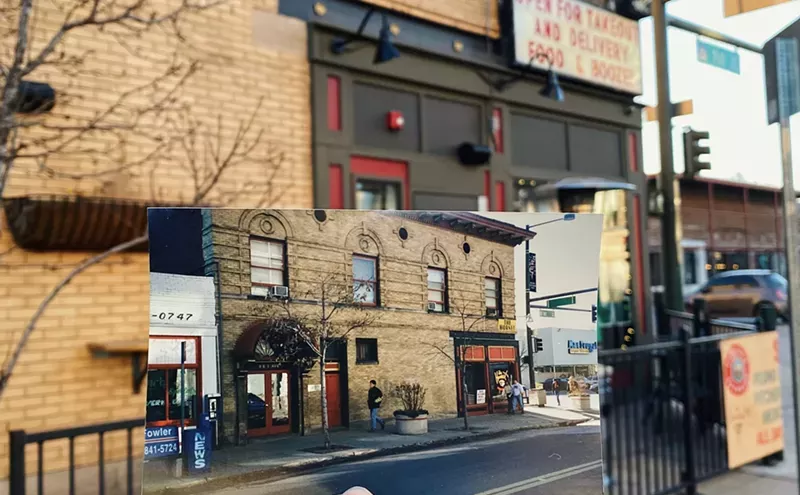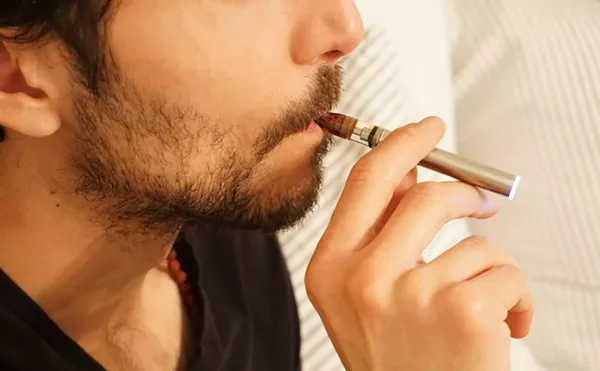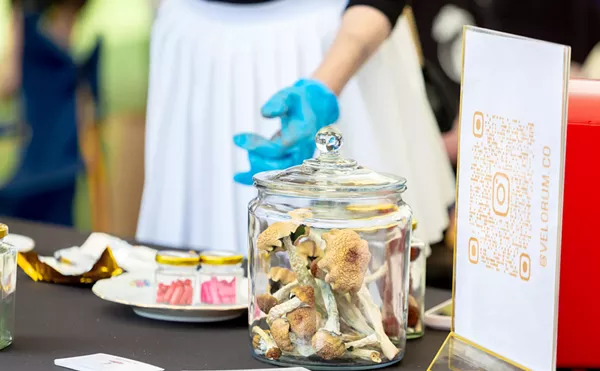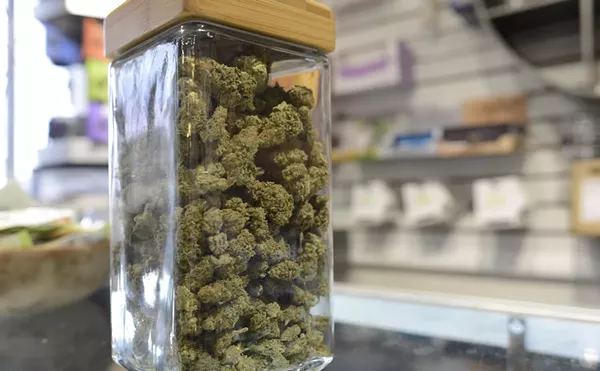Several members of Colorado's cannabis industry, along with attorneys and legislators, have voiced strong displeasure with Hunt's opinions, which he said he was sharing in hopes of rallying prohibitionists against New Jersey Senator Cory Booker's Marijuana Justice Act, a bill that would make marijuana legal federally. Hunt has been a vocal opponent of legalized marijuana in Colorado, creating a petition to ban the Denver 420 Rally and even agreeing to publicly debate the event's attorney, Rob Corry.
We reached out to Hunt to discuss his warning to the nation, but he hasn't responded. He might be busy arming himself with better information for that debate than what he cited in his recent op-ed...unless he's counting on Attorney General Jeff Sessions to be the moderator.
Hunt's call to action began by chastising Booker's proposal as "another sad moment in our nation’s embrace of a drug that will have generational consequences" before letting loose with some fire-and-brimstone claims:
Colorado has seen an increase in marijuana related traffic deaths, poison control calls, and emergency room visits. The marijuana black market has increased in Colorado, not decreased. And, numerous Colorado marijuana regulators have been indicted for corruption.Although those sentences read more like an angry Facebook comment than a reasoned op-ed, some of Hunt's allegations are technically true....but in context, definitely false. Reports of marijuana-related traffic deaths, poison-control calls and emergency-room visits have all increased in Colorado since legalization – but Hunt fails to mention that the state hadn't effectively monitored marijuana impairment incidents until 2014, when Colorado State Patrol officers began tallying impaired-driving cases involving marijuana only, and many other state departments started doing the same. And that's just the start of Hunt's disingenuous statements.
"For someone to say he's from a university and not be able to talk about the limitations of the very statistics that he cited, I'm pretty flabbergasted," says state representative Jonathan Singer.
Colorado Governor John Hickenlooper has not weighed in on Hunt's op-ed, but he's already endorsed more research on cannabis, calling for established baselines for testing marijuana intoxication from car accidents and DUIs before making assumptions.
Numerous studies have already shown little connection between rising motor vehicle fatalities and legalized marijuana. An American Public Health Association study monitoring driving fatalities from 2009 to 2015 in Colorado and Washington, as well as eight states where marijuana is illegal, showed that fatality rates for Washington and Colorado were similar to those of the eight other states, both before and after legalization. Earlier this year, Colorado Department of Transportation executive director Shailen Bhatt blamed distracted driving for the rising rate of traffic deaths in Colorado, without making any mention of marijuana.
And while the Rocky Mountain Poison and Drug Center did see a rise in marijuana-related calls in 2014, up to 151 that year, the rise leveled off in 2015, according to the Colorado Department of Public Health and Environment – and the number actually decreased in 2016.
Regarding another Hunt claim, Renee Rayton, a former marijuana regulation compliance officer from Pitkin County, was indeed indicted for interstate marijuana trafficking in June after leaving her job with the state. But Westword couldn't find any reports of current state marijuana officials indicted for corruption involving marijuana.
"His insinuation about regulators is uncalled for. Regulators at the state and local level in Colorado are good people making their best efforts to make this thing work," says Denver regulatory and licensing attorney Tom Downey, who previously was head of the Denver Department of Excise and Licenses. "Most of them didn't necessarily volunteer to be marijuana regulators. These are public servants giving their best efforts to make the best situation of a new industry, regulations and products."
As for Hunt's black-market charge? According to Arcview Market Research’s latest study on the nation’s cannabis industry, Colorado had the smallest rate of black-market cannabis transactions in the country, at just 27 percent of total spending. Compare that to a 51 percent rate in Washington and a 49 percent rate in Oregon — and a 100 percent rate in prohibition states.
"Over $1.3 billion in sales took place in licensed cannabis business last year. That would've been $1.3 billion in black market sales," says Mason Tvert, a legalization advocate and vice president of communications and public relations for VS Strategies, a cannabis communications firm.
In July, VS Strategies released a report on Colorado marijuana revenue that conflicts with this Hunt claim that marijuana tax revenue hasn't helped public schools:
In 2012, we were promised funds from marijuana taxes would benefit our communities, particularly schools. Dr. Harry Bull, the Superintendent of Cherry Creek Schools, one of the largest school districts in the state, said, "So far, the only thing that the legalization of marijuana has brought to our schools has been marijuana."The VS Strategies report, based on publicly available data from the Colorado Department of Revenue, shows that $117.9 million in marijuana taxes has been used to fund school construction projects, and an additional $5.7 million was distributed to the Public School Fund in fiscal years 2015-16 and 2016-17. "Schools need to apply for that money," Tvert says. "That money has gone to all sorts of schools – mostly schools that need the money for construction projects."
Bull's quote in Hunt's op-ed came from a public letter he wrote in 2016. He declined to be interviewed.
Hunt also believes that legalization has hurt minority youth, writing:
According to the Colorado Department of Public Safety, arrests in Colorado of black and Latino youth for marijuana possession have increased 58% and 29% respectively after legalization. This means that Black and Latino youth are being arrested more for marijuana possession after it became legal."This is a much a broader social issue involving police practices and where police tend to be patrolling, whether police make arrests or they give out warnings," Tvert says. According to the Denver Police Department, arrests for adults of all races was cut in half from 2014 to 2016, the same year the statistic that Hunt references was released.
"He doesn't talk about how many people were found guilty. A lot of those arrests ended with pre-trial diversion," Singer adds.
But for critics, the most questionable information Hunt decided to use in his op-ed was data from the Rocky Mountain High Intensity Drug Trafficking Area Report, in a study that's been widely criticized by media and public-health officials. Hunt wrote this:
Since legalizing marijuana, Colorado's youth marijuana use rate is the highest in the nation, 74% higher than the national average, according to the Rocky Mountain High Intensity Drug Trafficking Area Report. This is having terribly negative effects on the education of our youth."Every report needs to be looked at with its own limitations," says Singer. "This study changed its own rules for analysis halfway through the game. There's so many limitations to that study that it's important to look at it in its context. Take a look at our own validated Healthy Kids survey that's national recognized, and see what that shows."
On multiple pages, the RMHIDTA report notes that data from years past, especially those before 2012, is incomplete for studies on marijuana-related traffic fatalities and emergency department visits. Washington Governor Jay Inslee called the RMHIDTA "incomplete and unreliable data that does not provide the most accurate snapshot" in a statement released August 4.
The Healthy Kids Colorado Survey that Singer cites was a CDPHE study conducted from 2009 to 2015 on marijuana use by middle- and high-school students. It found that youth marijuana use remained relatively unchanged during the time span, and that Colorado's youth had a lower rate of current marijuana use than the national average.
In his op-ed, Hunt ignored a few benefits that marijuana has brought Colorado: the $420,000 from local marijuana tax revenue that Pueblo County used to help send 210 kids to college; the 20 percent of the City of Edgewater's budget that came from marijuana taxes in 2016; the Aurora homeless shelter that could open thanks to $900,000 from marijuana tax revenue, part of a $1.5 million plan to use those funds to fight the city's homelessness problem. And don't forget the state's youth dropout prevention program that was partially funded by marijuana revenue.
To be fair, Hunt was speaking from experience when he wrote about his dislike of marijuana. In an interview with Westword in May, Hunt said that he smoked pot in eighth grade, killing his grades and short-term memory in the process. After kicking the habit, he still kept in touch with some of his friends, and has "watched the drug wreak havoc on their lives ever since," Hunt told us.
Does Hunt's bad experience with marijuana outweigh the views of 61 percent of Americans who supported federal marijuana legalization in Quinnipiac's most recent national poll? Not judging from the comments pouring into USA Today, including this from Mark:
Hey ya Jeff, I'm not a dope smoker but I live in Colorado. Your little facts you try to throw down the reader's throat are junk. Your opinion doesn't matter and your writing is very weak, unjustified and made up. Please find your coloring book and go back to your room and play.

